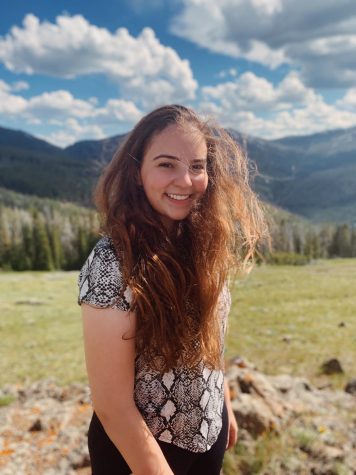Crisis in Nicaragua Prompts Changes in Costa Rica
Photo Credit: Ezequiel Becerra // AFP
Nicaraguans and Costa Ricans protesting against president Ortega’s actions in San Jose, Costa Rica.
September 27, 2018
For the past five months Nicaragua has been facing their largest public revolt since their Civil War in 1990. Nicaraguans’ relationship with their government was strained in the beginning of April after a wildfire in the Indio Maiz biological reserve.
Originally, the intention of the reserve was to designate a specific part of the Tropical Rainforest for the indigenous Rama people to reside in. However, non indigenous people settled there and the government has done nothing to stop it.
In addition, Nicaraguans have been furious over the fact that the Nicaraguan administration did not accept help from other countries during the fires.
Tensions turned into protest after the government divulged their plans to change their social security system.
Even though authorities reversed the change, protesters continued marching over their discontent of the aggressive way pro-government groups, known as the “grupos de choque”, attacked them.
The grupos de choque, which can be translated to shock forces, are known for previously violently preventing Nicaraguans from rioting.
Using the police officers killed during the turmoil as an excuse to label the activists as terrorists, authorities have been attacking protesters in street fights, utilizing guns and sharpshooters, going as far as implementing house-to-house raids. Security forces are justifying their actions by accusing the so called terrorists of the arson of homes and businesses, murder, kidnapping and torturing of hundreds.
Activists in the other hand claim that they are hauled out of their homes and arrested by pro-government groups. Security forces are trying to clear roadblocks and barricades, while the people, some who barely participated in the protests, are being persecuted.
Now, asking for justice and reforms in the government, Nicaraguans want President Ortega to step down or hold early elections.
Ortega responded by saying any of the options would be unconstitutional. These perilous months left more than 300 people dead and many Nicaraguans have participated in a mass migration to Costa Rica.
Given that many entered the country illegally and have not talked to authorities, the number of people that departed from Nicaragua to Costa Rica is unknown. Since the beginning of the year, over 24,400 Nicaraguans have or are in the process of applying for asylum. From this number, a fraction is made up of people who were already residing in the country and decided to ask for asylum after the revolt. Hundreds of Nicaraguans line up the sidewalks of immigration offices for days at a time waiting to make an appointment for 2019.
The reason why Nicaraguans are traveling to Costa Rica, in addition to them being neighboring countries, is because Costa Rica recently signed the Protection Transfer Agreement with the United States.
This arrangement, was originally intended to help refugees from countries that are part of the Northern Triangle. This agreement consists of Costa Rica giving asylum to 200 prescreened refugees for up to six months at a time while they go through the United States asylum process. The reason for this accord is to help those fleeing from their countries and to prevent people from crossing the Mexican border with the United States.
However, problems arose with the time frame required to register these fugitives in the United States. Since the American process often requires more than a year and these refugees have no work permit or health care in Costa Rica, it is unknown what will happen to those whose asylum process takes longer than the allotted 6 months.
With this wave of foreigners, Costa Rica is experiencing a crisis in their own country
In August, more than 40 people were arrested at La Merced Park in Costa Rica, carrying knives, baseball bats and glass bottles.
Hundreds of Costa Ricans showed up to the occasion, with weapons intended to be used towards Nicaraguans, who were allegedly awaiting free meals from churches and charities. The Costa Rican government is investigating whether the situation was started by Ortega himself or one of his supporters.
Some Costa Ricans have been trying to help by donating clothes or giving shelter. Hundreds have even felt the need to march with Nicaraguans against Ortega. For now however, many Nicaraguans remain in limbo as Nicaragua faces a troubling crisis.



